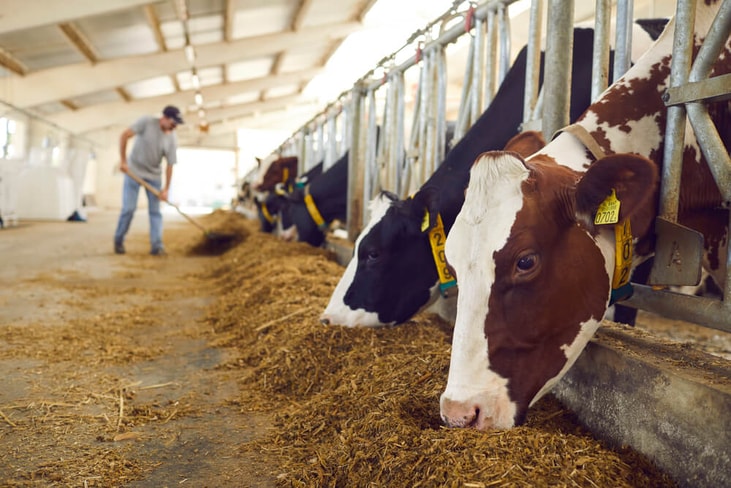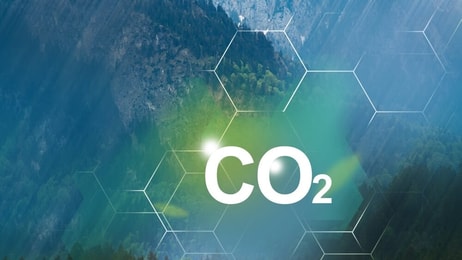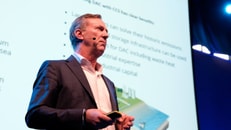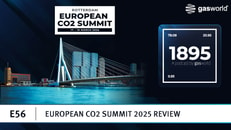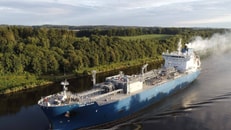Ambient Carbon proves methane clean-up tech at Danish dairy trial
Danish energy technology company Ambient Carbon has demonstrated that dilute methane emissions from dairy barns can be eradicated at commercial scale following a field trial in Denmark.
The company’s methane eradication photochemical system (MEPS for short) destroyed up to 90% of methane in barn ventilation air, validating the technology’s performance in real agricultural conditions with concentrations ranging from 4.3 ppm (parts per million) to 44 ppm.
Methane has 84 times more global warming potential than carbon dioxide over a 20-year period, and livestock account for around 30% of human-caused emissions.
The trial was carried out at the Hofmansgave Foundation farm in Denmark, where a MEPS unit housed in a standard shipping container processed air from a 250-cow dairy barn. Ambient Carbon said the test confirmed the technology’s scalability, moving beyond its laboratory prototype.
“Proving that MEPS technology works at scale is absolutely crucial in our journey to deliver a commercial solution in 2026,” said Dave Kenney, CEO of Ambient Carbon. “This field demonstration validates our approach and shows that we can achieve the performance metrics needed for widespread adoption across the agricultural sector.”
The system not only destroyed methane but also removed ammonia and odours while generating a fertiliser by-product, reducing operating costs for farmers.
It uses a gas-phase photochemical process that combines chlorine atoms and UV light in a reaction chamber, mimicking a natural process of methane destruction in the atmosphere.
“We have found that chlorine is the Achilles heel of methane,” said Matthew Johnson, co-founder and CSO of Ambient Carbon, who explained how the system works in a statement last year.
As dairy barn air cycles through MEPS, it breaks down methane at its source, preventing its release into the ambient air. The chlorine atoms are produced onsite via electrolysis of saltwater before it is recycled in a closed system after most of the methane is cleaned up.
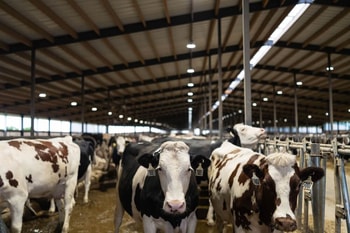
Livestock account for around 30% of human-caused methane emissions. ©Shutterstock
Dairy company Danone North America backed the project, which also involved Benton Dairies. Jessie Copeland, Head of Regenerative Agriculture at Danone North America, said, “The success in Denmark paves the way for further strategic collaborations between Danone North America and Ambient Carbon, reinforcing our shared commitment to enhancing farmer and supply chain resiliency.”
Benton Dairies Conservation Lead Chris Williams added, “MEPS is a non-invasive technology that will remove more methane from our farms than any available technology we’ve encountered.”
The project was part of the PERMA Project consortium, which also includes dairy giant Arla, the University of Copenhagen, Aarhus University, and climate tech business SKOV, with support from Innovation Fund Denmark.
Ambient Carbon said the MEPS system could also be deployed at covered manure storage facilities, biogas plants and wastewater treatment plants, opening up wider applications for low-concentration methane destruction.
With fugitive methane emissions on the rise in these sectors, the International Energy Agency has estimated leakage rates at agricultural biogas plants between 2% and 5.5%, and as high as 8% at wastewater treatment facilities, well above the roughly 1.2% seen in oil and gas systems.
The Global Methane Initiative, a public-private partnership, is also targeting reductions across agriculture and municipal wastewater.

